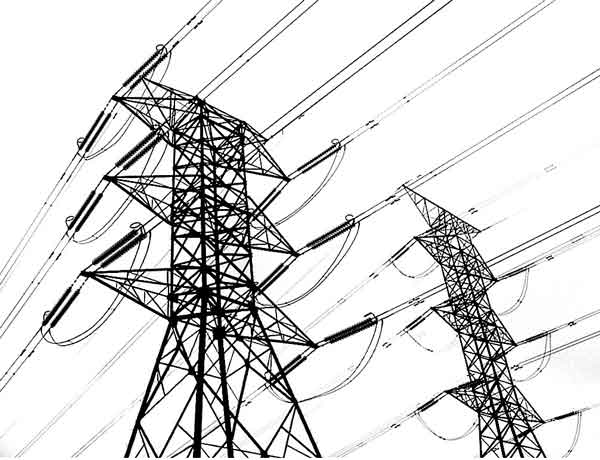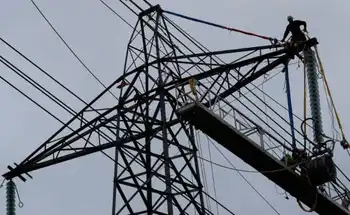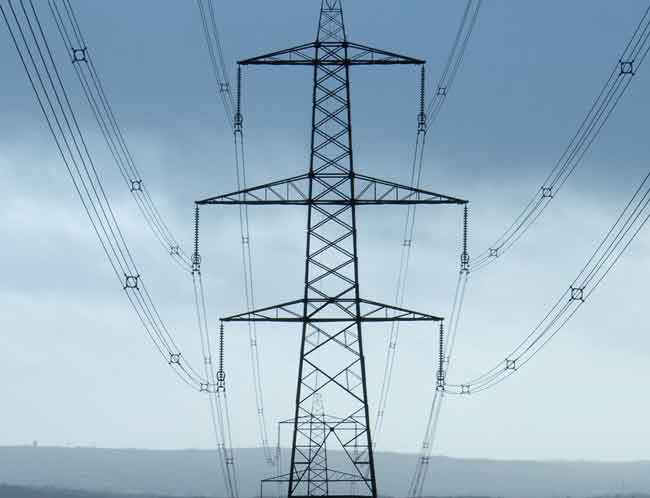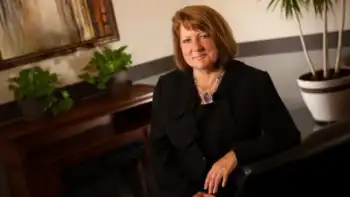Infrastructure fix may be beyond Washington
By Reuters
NFPA 70e Training
Our customized live online or in‑person group training can be delivered to your staff at your location.

- Live Online
- 6 hours Instructor-led
- Group Training Available
Executives at leading U.S. engineering and construction companies largely agree that both presidential candidates and parties would struggle to drum up policy and funds fast enough to have much impact on a $1 trillion-plus problem, even if it presents a severe threat to U.S. competitiveness long term.
So they say the way should be cleared for the growing amounts of money controlled by infrastructure-focused fund managers to finance everything from toll roads to airports.
John Dionisio, head of Los Angeles-based engineering company AECOM Technology Corp, says there is plenty of money seeking a home in public private partnerships (PPPs), a form of financing popular in Europe in which governments put companies under contract to invest in infrastructure.
"We need to do the improvements, it's not something we can defer," the chief executive told a recent industry conference.
Neither Republican John McCain nor Democrat Barack Obama made infrastructure a priority at their party conventions and Wall Street's growing financial crisis is likely to have only pushed it further down their respective 'To Do' lists.
Of course, that could change quickly if there is another deadly accident similar to the collapsed bridge in Minnesota just over a year ago, which prompted a bout of hand-wringing about the state of American infrastructure at the time.
As evidence of politicians awaking to the problem, Dionisio pointed to the Senate's recent approval of $8 billion more for highway building, as well as Obama's plan for a $60 billion fund to rebuild roads, ports and rail and upgrade the power grid. Regardless of who wins the election, Dionisio expected more federal assistance to flow to states for infrastructure, if only because 30,000 jobs are created for every $1 billion spent on construction, he said, and the economy will need the help.
The American Society of Civil Engineers estimates $1.6 trillion is needed over a five-year period just to bring U.S. infrastructure into a state of good repair.
"Clearly PPPs have a role in financing infrastructure," David Mongan, president of the society, told Reuters. "It's not the only solution, it is simply one tool that is available."
Many states encounter political and public resistance to leasing their assets, but PPP promoters believe financial constraints will eventually force them to let investors put up the front money in exchange for tolls or payments over time.
The chief financial officer of Pasadena, California-based Jacobs Engineering Group Inc said PPPs could plug gaps for states struggling without the tax windfall of now-collapsed housing booms, such as Florida, Texas and California.
"We're seeing alternative financing coming into this market," CFO John Prosser told the D.A. Davidson Engineering and Construction Conference in San Francisco two weeks ago.
Just recently, the city of Chicago reached a $2.52 billion deal to lease Midway Airport for 99 years to a group, including Citigroup Inc unit Citi Infrastructure Investors, in the first privatization of a major U.S. airport.
Chicago leased its Skyway toll bridge for $1.8 billion in 2005 and the reserve funds that created were cited by Moody's Investors Service as a credit strength in a note on October 2. But PPPs arouse suspicion. A group representing engineers employed by the state of California has said it will sue Calpers to stop the $234 billion pension fund from investing in such partnerships because they threaten public-sector jobs.
And a survey found most Pennsylvanians opposed privatizing a 531-mile (854-km) road in a $12.8 billion deal with Citigroup and Spain's Abertis Infrastructures SA (which subsequently fell apart).
"That might have as much to do with who's buying," said John Kramer, the president of Orinda, California-based infrastructure specialist Kensington Investment Group, who saw opposition to foreign suitors waning as local money runs out.
"We're behind the curve compared with Europe, Australia, as far as having private company ownership of assets."
Looking toward the election, Jacobs CFO Prosser saw little difference between the candidates on infrastructure. He noted McCain's opposition to the earmark spending that often funds big projects, but said any move to help states fix "sub-standard" infrastructure would come from Congress anyway.
Regardless, he told Reuters an anticipated low-single-digit growth rate from infrastructure was "a rounding error" compared with the growth Jacobs is seeing in the oil and gas industry.
Another engineering company benefiting from that energy construction boom is Foster Wheeler Ltd, which builds oil and gas processing facilities, as well as power plants.
Chief Executive Raymond Milchovich said the main hurdle to building U.S. power plants was not financial, but regulatory, and that there was a serious lack of clarity in U.S. energy policy that would probably not change much after November.
"The resistance hides behind the ambiguity," he said. "I don't think either candidate is going to clear that up."
One of McCain's pledges on infrastructure is to build 45 nuclear reactors, with a longer-term goal of 100.
Michael Steuert, chief financial officer of Irving, Texas- based engineering company Fluor Corp, said current Energy Department thinking is: "If you're serious about global warming, you have to be serious about nuclear power.
"We do expect a new wave of nuclear building," he told the conference. "But it's going to be out there a ways."












